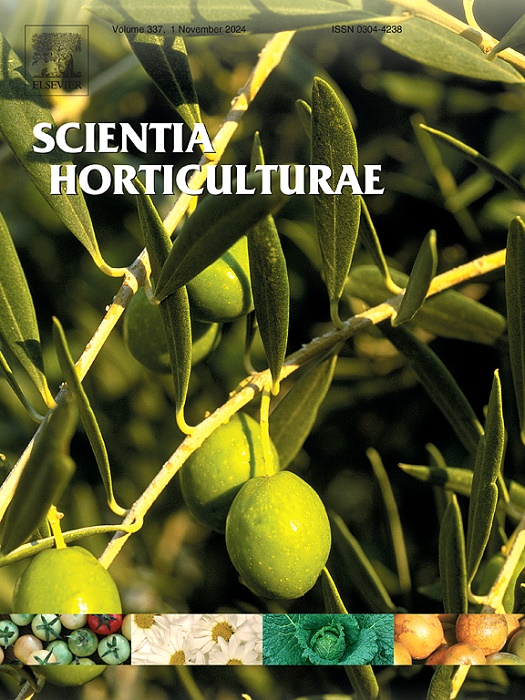草酸对鲜切马铃薯片采后生理及贮藏过程酶促褐变的影响
IF 4.2
2区 农林科学
Q1 HORTICULTURE
引用次数: 0
摘要
鲜切土豆富含矿物质、维生素和多酚类抗氧化剂,因其方便而被广泛食用。本研究研究了在5.0 g L-1草酸溶液中浸泡鲜切马铃薯片对其后续品质和保质期的影响。结果表明,与对照相比,草酸处理显著延缓了鲜切土豆的褐变,降低了乙烯产量和呼吸速率。草酸处理保持了硬度、淀粉和抗坏血酸,增强了抗氧化能力,减少了脂质过氧化。草酸抑制苯丙氨酸解氨酶(PAL)、多酚氧化酶(PPO)和过氧化物酶(POD)的表达,延缓褐变,增强抗氧化活性。因此,草酸的施用保持了鲜切土豆的感官和营养品质,并根据感官质量阈值将其保质期延长了约24小时。本文章由计算机程序翻译,如有差异,请以英文原文为准。
Effect of oxalic acid on the postharvest physiology and enzymatic browning of fresh-cut potato slices during storage
Fresh-cut potatoes, rich in minerals, vitamins, and polyphenolic antioxidants, are widely consumed for their convenience. The present study investigated the impact of soaking fresh-cut potato slices in a 5.0 g L-1 oxalic acid solution on their subsequent quality and shelf-life. Results showed that oxalic acid treatment, compared to the control, significantly delayed browning and reduced ethylene production and respiration rates in fresh-cut potatoes. The oxalic acid treatment maintained firmness, starch, and ascorbic acid, with enhanced antioxidant capacity and reduced lipid peroxidation. Oxalic acid inhibited phenylalanine ammonia-lyase (PAL), polyphenol oxidase (PPO), and peroxidase (POD) expression, delaying browning and enhancing antioxidant activity. Therefore, the application of oxalic acid maintained the sensory and nutritional quality of fresh-cut potatoes, and prolonging their shelf life by approximately 24 h based on sensory quality thresholds.
求助全文
通过发布文献求助,成功后即可免费获取论文全文。
去求助
来源期刊

Scientia Horticulturae
农林科学-园艺
CiteScore
8.60
自引率
4.70%
发文量
796
审稿时长
47 days
期刊介绍:
Scientia Horticulturae is an international journal publishing research related to horticultural crops. Articles in the journal deal with open or protected production of vegetables, fruits, edible fungi and ornamentals under temperate, subtropical and tropical conditions. Papers in related areas (biochemistry, micropropagation, soil science, plant breeding, plant physiology, phytopathology, etc.) are considered, if they contain information of direct significance to horticulture. Papers on the technical aspects of horticulture (engineering, crop processing, storage, transport etc.) are accepted for publication only if they relate directly to the living product. In the case of plantation crops, those yielding a product that may be used fresh (e.g. tropical vegetables, citrus, bananas, and other fruits) will be considered, while those papers describing the processing of the product (e.g. rubber, tobacco, and quinine) will not. The scope of the journal includes all horticultural crops but does not include speciality crops such as, medicinal crops or forestry crops, such as bamboo. Basic molecular studies without any direct application in horticulture will not be considered for this journal.
 求助内容:
求助内容: 应助结果提醒方式:
应助结果提醒方式:


